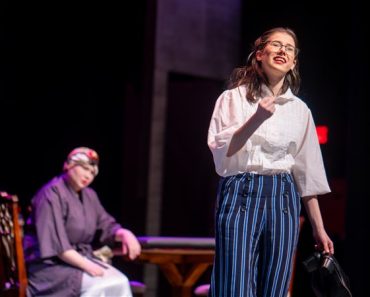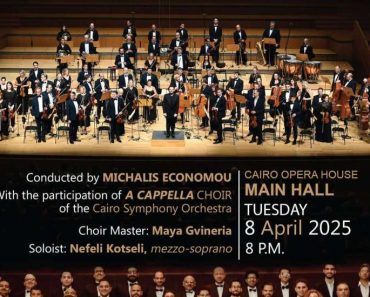In the Heliopolis district of Cairo, Egypt, you cannot fail to notice the great wall and the ancient Greek-style buildings that appear behind it. If you ask a passer-by, they will quickly answer, “That’s the Greek school.” In fact, the entire district still remembers the history of the Greeks in Egypt, to the point that there are small shops and kiosks with names like “The Greek Star” and “Georgios the Greek.”
The Ampeteios School was founded in 1855 with donations from the Greek-Syrian Ampet brothers, Raphael, Ananias and Georgios. Named after the family, it opened in 1861. At that time, the school’s bylaws were drawn up and teaching officially began. Since then, the school has become one of the spiritual centers of the Greek community in Egypt.
The school consists of two departments: the Greek language department and the Arabic language department. It also houses a good library, a computer science laboratory, a physics and chemistry laboratory, a clinic, a multipurpose hall, and a theater. It has elementary, middle and high schools, as well as a commercial school. In 1996, the Ampeteios School Association was founded in Athens.
“Greek has been used in Egypt for thousands of years,” says George Kokorelis, coordinator for educational affairs in North Africa and Middle East at the Embassy of Greece in Cairo. “After Alexander the Great, scholars and philosophers in Alexandria also wrote in Greek, so part of our heritage is in Alexandria. This was a century before the birth of Christ.”
Regarding the Greek education system in Cairo, Kokorelis explains that it is similar to that of Athens, with the same lessons, books and materials. He adds that there are currently 25 primary school pupils and 68 secondary school students in Cairo. He says that Egyptians who had previously moved to Greece and returned to Cairo years later send their children there to continue the Greek education they began in Athens.
He adds that there used to be many Greek schools in Egypt, but when the number of students decreased, the schools were closed.
In the Classical way
In Classical Athens, emphasis was placed on physical and intellectual education equally. Physical education was known to the Athenians as “gymnastics,” which included exercises to develop endurance and prepare for war.
Music, playing instruments, singing and dancing were also fundamental to education in Classical Greece. Students wrote using a tool similar to a pencil, engraved on wax tablets, and memorized and recited poetry.
The Greek school in Cairo continues to maintain classical education. Last February, at a ceremony held at the residence of the Greek ambassador in Cairo, Greek school pupils and Greek language students performed music and recited poems by Constantine P. Cavafy.
“We still follow this system today, because children must be raised on physical and intellectual foundations. Many Greek philosophers accurately explained the importance of the relationship between the soul, and the body, and we continue to follow in the footsteps of our ancestors,” Kokorelis explained.
Eleni Momouri, an English teacher at the Ampeteios School and a professor of Modern Greek at Cairo University, says videos and short films from Greece are shown to students, and they also learn Greek dancing. Most of them go on vacation with their families to Greece, which strengthens their ties to their homeland.

Keeping up with developments
International education options are available in Egypt, including American, French, British, Canadian, Chinese and Japanese schools and universities. Is there a plan to expand Greek education, such as establishing English-language schools or universities? Kokorelis says, “There was a plan to open a branch of the University of Patras in Alexandria in 2023, but it is still under consideration.” He expresses hope that there will be a Greek university in Egypt, adding that the Greek minister of education visited Cairo in December and presented ideas to help the Greek community in Cairo.
The bulk of the funding comes from the Greek community, Greeks who have supported the Greek community, and the Greek government through the Greek Ministry of Education.

On cooperation with Egypt, he details that “there are departments teaching the Greek language at Cairo University, Al-Azhar University and Ain Shams University, and the departments of Classical studies and Ancient Greek, as well as departments of Roman and Greek archaeology, and Greek teachers are teaching at Egyptian universities, assisting Egyptian professors because the Egyptian teaching staff is insufficient and requires native speakers, and the Egyptian university students come to the Greek school to improve their Greek and participate in student activities.”
Sara Sherif is a journalist and foreign affairs analyst.







